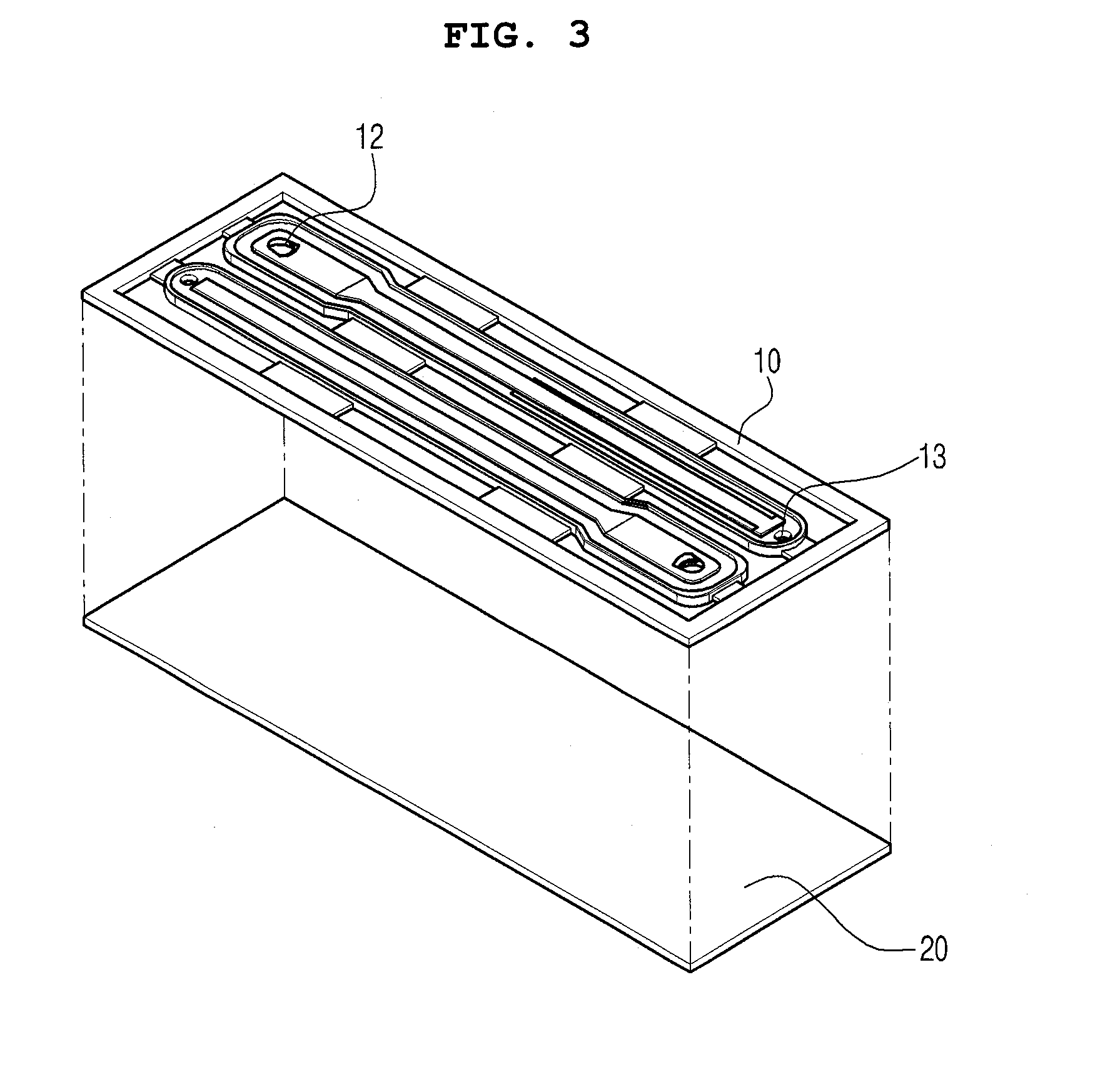Module for detecting analytes in fluids and chip having the same
- Summary
- Abstract
- Description
- Claims
- Application Information
AI Technical Summary
Benefits of technology
Problems solved by technology
Method used
Image
Examples
embodiment 1
Manufacturing a Fluid Analysis Chip
[0051]FIG. 3 is a perspective view of a fluid analysis chip according to the first preferred embodiment of the present invention, FIG. 4 is a sectional view of the fluid analysis chip shown in FIG. 3, in which the chip is cut off in a longitudinal direction, and FIG. 5 is a sectional view of the fluid analysis chip shown in FIG. 3, in which the chip is cut off in a transverse direction.
[0052]As shown, the chip according to the first preferred embodiment of the present invention has a structure where an upper plate 10 and a lower plate 20 are assembled with each other. A module included in the chip includes a microchannel 11, which is recessed on the upper plate 10 with a predetermined depth and extends in a longitudinal direction so as to form an airtight space when the upper plate 10 is assembled with the lower plate 20. The microchannel has one end with a filtering zone, which is connected with a sample inlet 12 extending outside of the microchan...
embodiment 2
Detecting Troponin I from Whole Blood
[0065]By using a chip, which has a structure equal to the structure of the microchannel 11 in embodiment 1 according to the present invention and has a microchannel with a height of 8 μm, Troponin I was detected from whole blood. Anti-Troponin I antibodies (clone 16A11, monoclonal, and Hytest), which are tagged with fluorescent material (Orange (540 / 560), Invitrogen) so as to label Troponin I, are temporarily immobilized on a substrate. Whole blood is injected into a sample inlet so as to remove blood corpuscles from the inlet of a micro channel, and Troponin I existing in the blood is bonded to the anti-Troponin I temporarily immobilized on the substrate. The whole blood was injected to the sample inlet-hole and the blood cell was removed of the entrance of microchannel. Subsequently, extra Troponin I tagged with fluorescent material, which didn't join in reaction, was removed by cleaning a chip. The level of fluorescent was checked by using a f...
PUM
 Login to View More
Login to View More Abstract
Description
Claims
Application Information
 Login to View More
Login to View More - R&D
- Intellectual Property
- Life Sciences
- Materials
- Tech Scout
- Unparalleled Data Quality
- Higher Quality Content
- 60% Fewer Hallucinations
Browse by: Latest US Patents, China's latest patents, Technical Efficacy Thesaurus, Application Domain, Technology Topic, Popular Technical Reports.
© 2025 PatSnap. All rights reserved.Legal|Privacy policy|Modern Slavery Act Transparency Statement|Sitemap|About US| Contact US: help@patsnap.com



